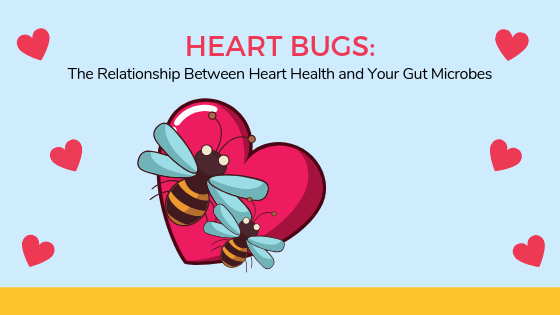What if your health, or lack of it, was being guided and manipulated by an invisible army of bugs? If you think it sounds like the plot of a science fiction movie, think again. Research is beginning to reveal how intimately the microbial inhabitants of our bodies are involved in determining our health picture.
According to a couple of articles published by the National Institutes of Health (NIH) within the past couple of years, researchers have identified a molecule made by gut microbes that is linked to cardiovascular disease risk. Dr. Stanley Hazen, a cardiologist and researcher at the Cleveland Clinic, has received numerous awards for the discovery of a molecule called TMAO that is made by certain particular microbes in our gut and has been found to be directly linked to the development of heart disease.
Dr. Hazen and his team also found that people who eat a diet heavy in red meat, are much more likely to have an abundance of this TMAO and the microbes that produce it. They also found that a long-term change of the diet to a more plant-based diet, changes the gut microbes and reduces the TMAO. In other words, although we have long known that people who eat red meat daily have an increased risk of heart disease, we now know why. The cause is the type of gut microbes a diet rich in red meat promotes.
The human gastrointestinal tract harbors more than 100 trillion microbial cells. The realization that we only have approximately 10 trillion human cells makes us ponder how human we really are! Most of our body’s microbes are found in the colon (large intestine). Our gut microbes are the filters for our greatest exposure to the outside world. The GI tract, when laid out flat, would cover more than two tennis courts in square footage. This fact, along with the knowledge of the vast array of potentially lethal chemicals in the world, gives us an indication as to how much we depend on our friendly bugs for health … and life.
Gut microbes have a symbiotic relationship with their host (us) and are dependent on each other. Gut bacteria help with the digestion of nutrients, prevent dangerous bacteria from taking over and help with proper immune function. How well we process foods and eliminate toxic waste products is entirely tied to each person’s individual gut microbial make-up. Additionally, we know that our diet needs to be suited to the microbes we want to promote and discouraging to the microbes that contribute to disease.
What does all this mean, and what should you do to prevent heart disease or cardiac events? The scientists will tell you they are still illuminating all the factors involved and the solutions. In pharma-ese, that means they are still developing the pharmaceutical products to address these discoveries. As you and I already know, pharmaceutical answers always involve unwanted side-effects and really are designed to address the symptoms rather than the cause of the problem.
So what is the cause of the problem? There are two main causes:
- Destruction and alteration of the microbiome through antibiotics (prescribed and given to conventional livestock) and pesticides.
- A diet deficient in the right types of microbes, the plant materials the microbes require and the nutrients needed for our bodies to produce energy and regenerate new cells for healing
There are two main solutions:
- Stop taking antibiotics and eating foods treated with antibiotics.
- Eat foods rich in probiotics, nutrients and plant materials. Limit red meat to 3-4 oz. once a week.
Not too difficult, right? Well, it may be harder to avoid the antibiotics than we realize, but we can at least mitigate our exposure by purchasing organic (avoiding pesticides), avoiding conventional meat that has been given antibiotics and not spraying our yards with herbicides (also antibiotics). And why not try growing some organic vegetables yourself this spring? Time to start planning and planting organic seeds now!

